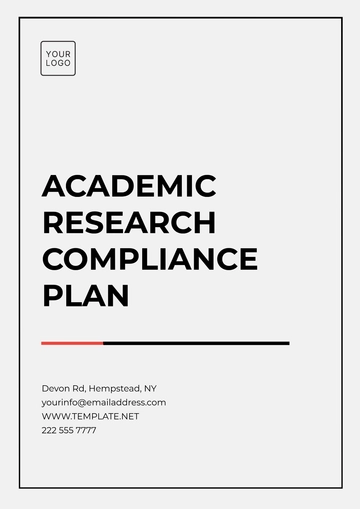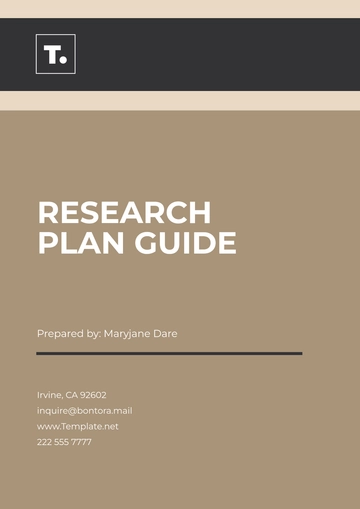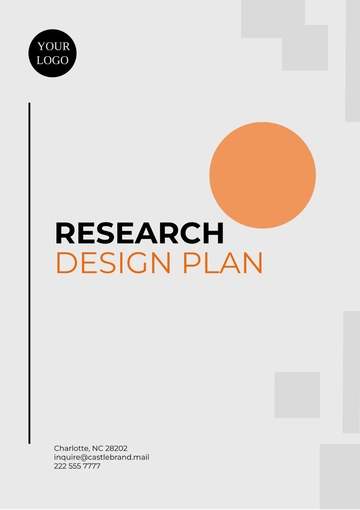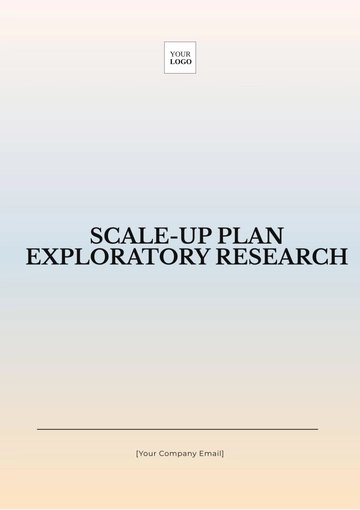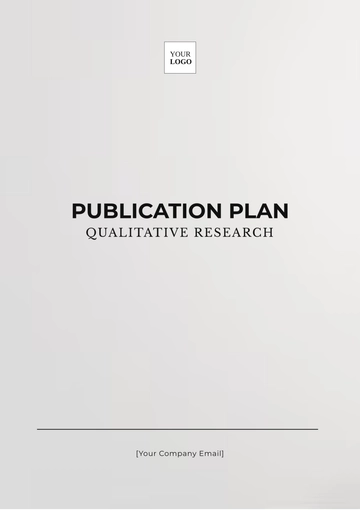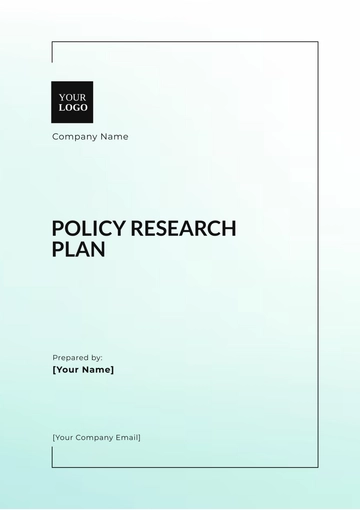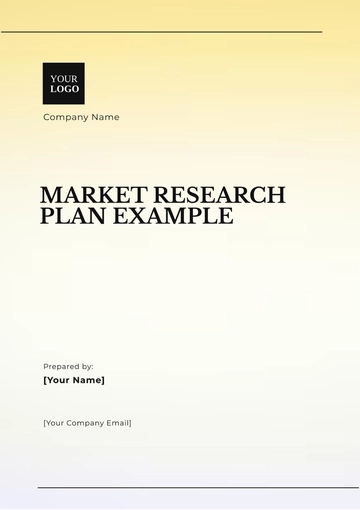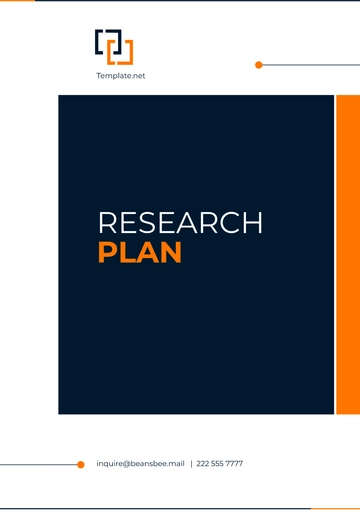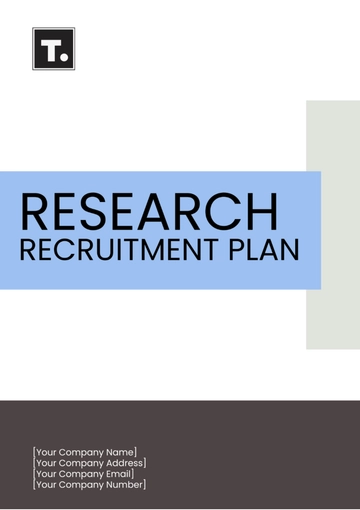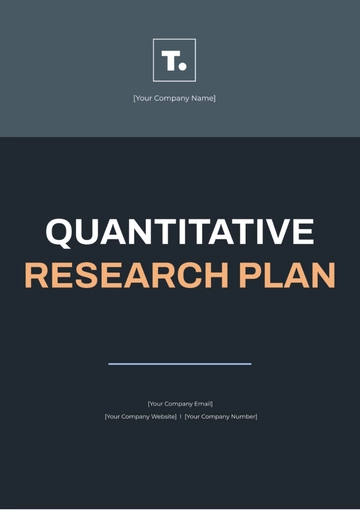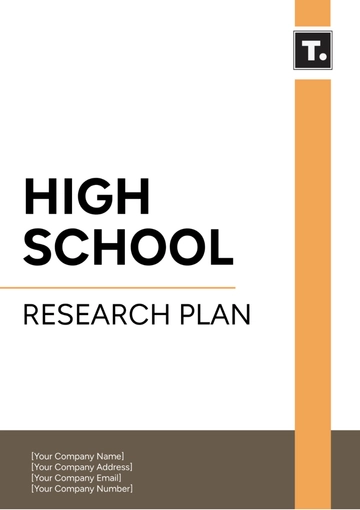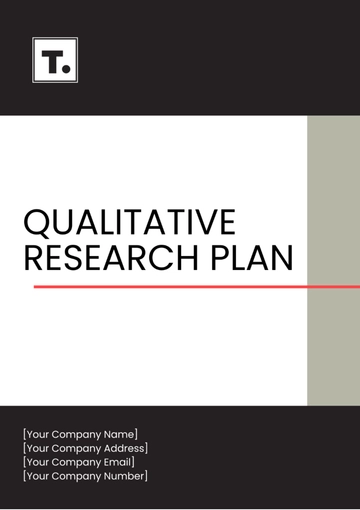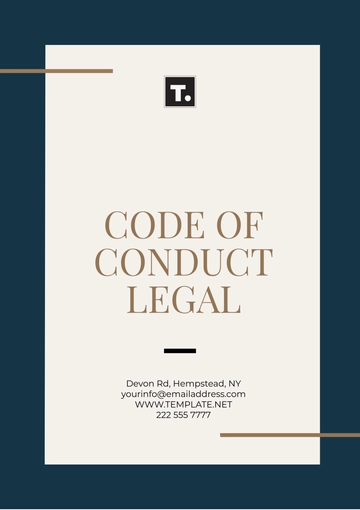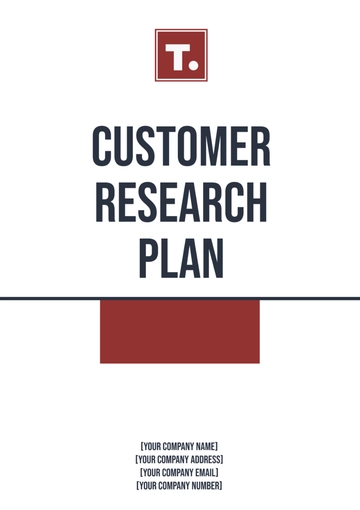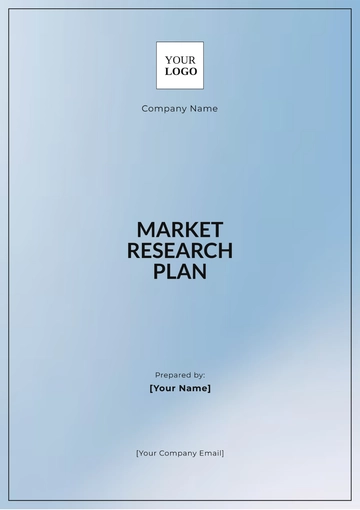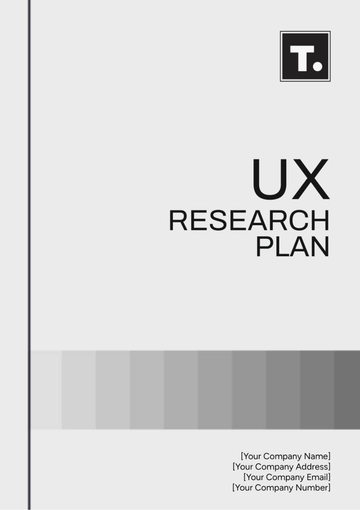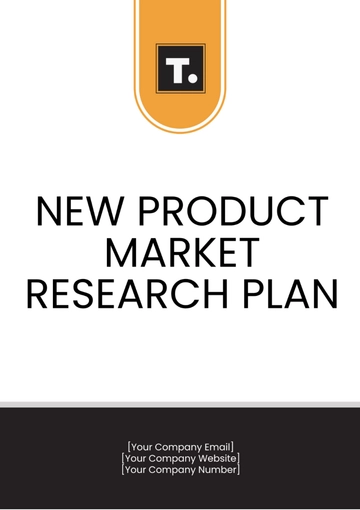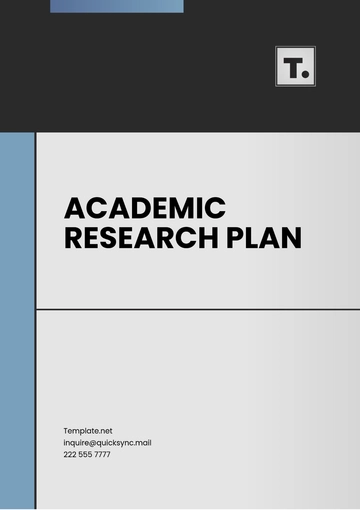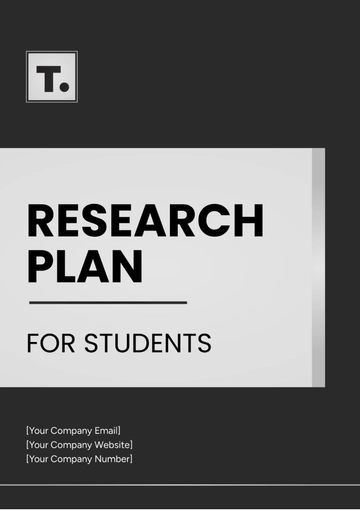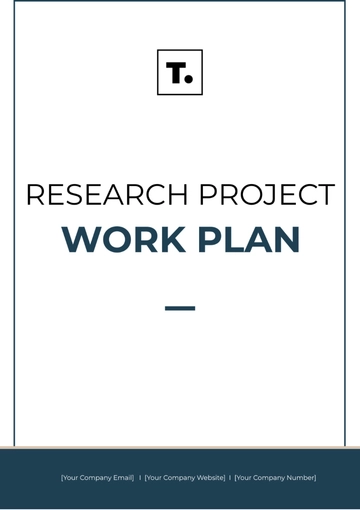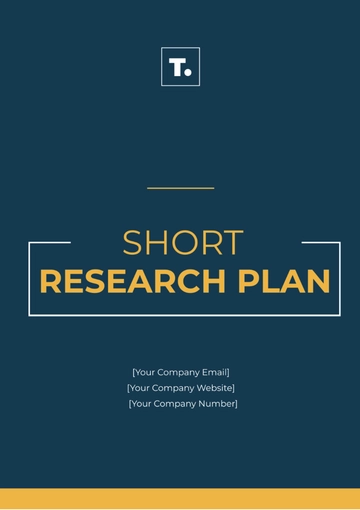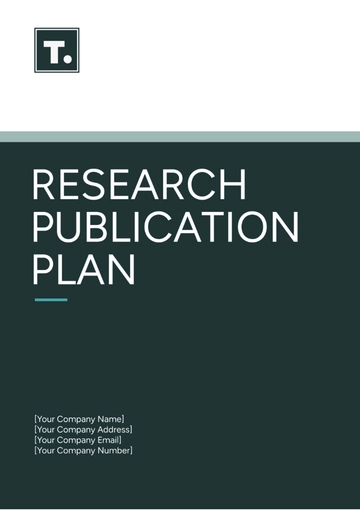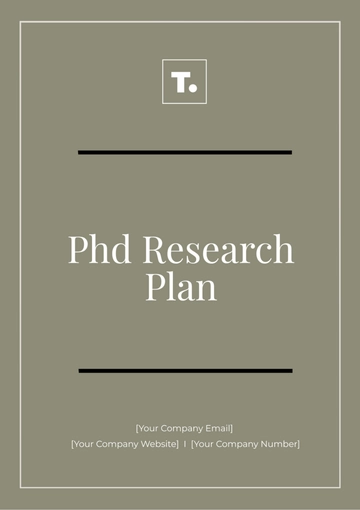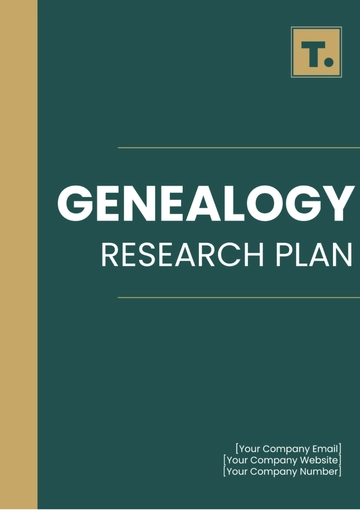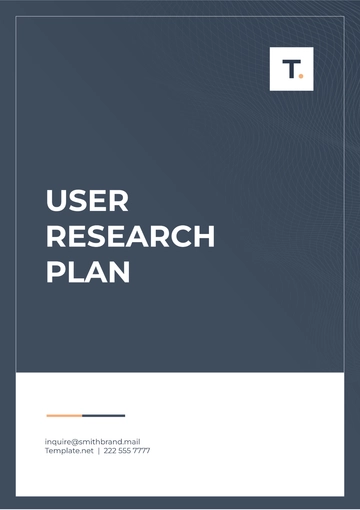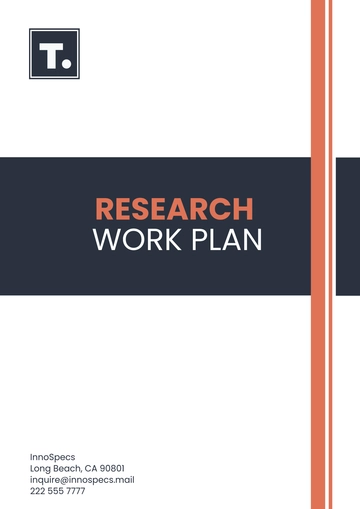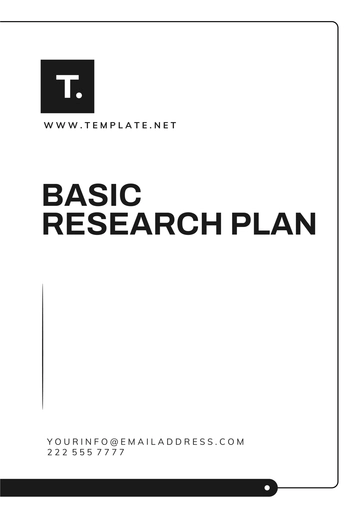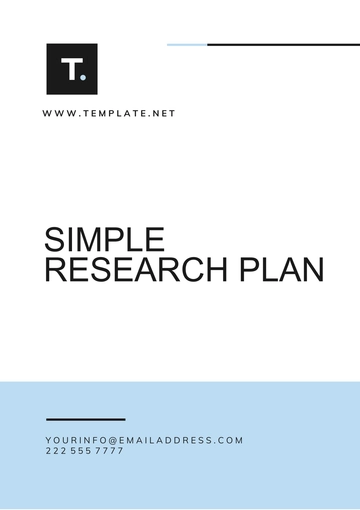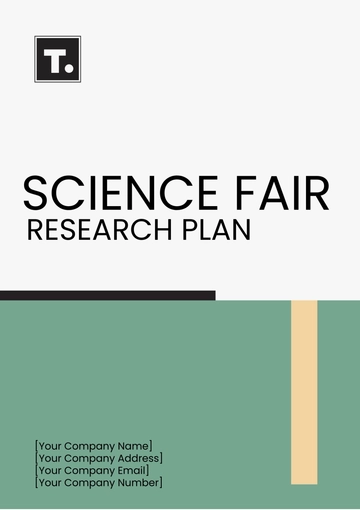Free Policy Research Plan
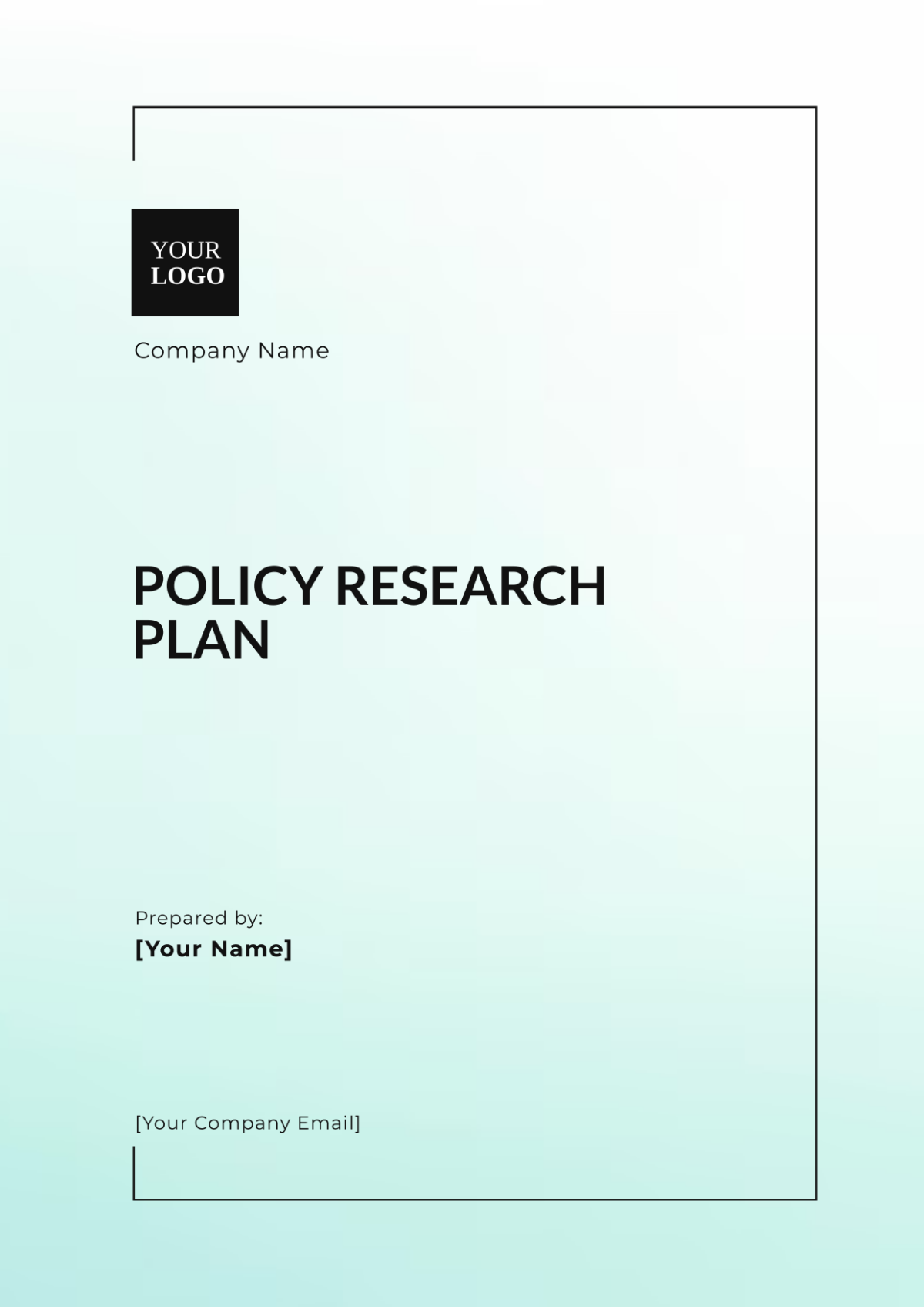
I. Introduction
This Policy Research Plan provides a comprehensive framework for analyzing and evaluating the implications of emerging policies in the year 2050. The objective is to deliver detailed insights, data, and strategic recommendations that will enable [Your Company Name] to effectively navigate the evolving policy landscape.
This plan ensures a thorough examination of relevant aspects to inform strategic decision-making and align business practices with current and anticipated policy frameworks.
II. Objectives
Understand Emerging Policies: Analyze new policies introduced in 2050 and their potential impacts on various sectors.
Evaluate Implications: Assess the implications of these policies on industry practices, regulatory compliance, and business operations.
Develop Strategic Recommendations: Provide actionable recommendations to align [Your Company Name]'s strategies with current and future policy frameworks.
III. Scope of Research
The research will cover the following areas:
Economic Policies: Examination of fiscal policies, trade regulations, and economic incentives.
Environmental Policies: Analysis of sustainability measures, climate change regulations, and environmental standards.
Technological Policies: Study of innovations, data protection laws, and technology integration.
Social Policies: Review of healthcare, education, and workforce development policies.
International Policies: Overview of global policy trends and international agreements affecting business operations.
IV. Methodology
Data Collection: Gather qualitative and quantitative data from various sources including government reports, industry publications, and expert interviews.
Data Analysis: Utilize statistical tools and analytical frameworks to interpret data and identify trends.
Stakeholder Consultation: Engage with key stakeholders including policymakers, industry leaders, and academic experts.
Report Compilation: Compile findings into a comprehensive report with clear insights and recommendations.
V. Data Sources
Source Type | Details | Example |
|---|---|---|
Government Reports | Annual policy reports, legislative documents | "Economic Policy Review 2050," U.S. Department of Commerce |
Industry Publications | White papers, industry analysis reports | "Technological Innovations 2050," International Technology Council |
Academic Journals | Research papers, case studies | "Journal of Environmental Policy 2050," Elsevier |
Expert Interviews | Insights from policymakers, industry experts | Interviews with Dr. Jane Smith, Environmental Policy Expert |
Market Research | Surveys, market studies | "Global Market Dynamics 2050," Market Insights Inc. |
VI. Timeline
Phase | Activity | Timeline |
|---|---|---|
Preparation | Define research scope and objectives | January 1 - January 31, 2050 |
Data Collection | Gather and compile data from sources | February 1 - April 30, 2050 |
Data Analysis | Analyze collected data and identify trends | May 1 - June 30, 2050 |
Stakeholder Consultation | Conduct interviews and gather expert opinions | July 1 - August 31, 2050 |
Report Compilation | Draft and finalize the research report | September 1 - October 31, 2050 |
Review and Presentation | Review findings and present recommendations | November 1 - November 30, 2050 |
VII. Budget
Category | Estimated Cost | Details |
|---|---|---|
Personnel | $150,000 | Research Analysts, Consultants |
Data Acquisition | $50,000 | Purchasing reports, surveys |
Stakeholder Engagement | $30,000 | Interview costs, travel expenses |
Software & Tools | $20,000 | Data analysis software |
Miscellaneous | $10,000 | Unexpected expenses |
Total: $260,000
VIII. Deliverables
Research Report: A detailed report with findings, analysis, and recommendations.
Executive Summary: A concise summary of key findings and recommendations.
Presentation: A presentation to stakeholders summarizing the research outcomes.
Policy Briefs: Briefs highlighting specific policy implications and recommendations.
IX. Risk Management
Data Accuracy: Ensure data accuracy through cross-verification with multiple sources.
Stakeholder Engagement: Mitigate risks of incomplete stakeholder input by using a diverse range of experts.
Timeline Adherence: Implement project management practices to stay on schedule.
X. References
Government Reports:
"Economic Policy Review 2050," U.S. Department of Commerce, Washington D.C., 2050. Available at: https://www.commerce.gov/economic-policy-review-2050
Industry Publications:
"Technological Innovations 2050," International Technology Council, London, 2050. Available at: https://www.itc.org/technological-innovations-2050
Academic Journals:
"Journal of Environmental Policy 2050," Elsevier, Amsterdam, 2050. Available at: https://www.elsevier.com/journal-of-environmental-policy
Expert Interviews:
Dr. Jane Smith, Environmental Policy Expert, Interviewed on July 15, 2050.
Market Research:
"Global Market Dynamics 2050," Market Insights Inc., New York, 2050. Available at: https://www.marketinsights.com/global-market-dynamics-2050
For further information or inquiries, please contact:
[Your Company Name]
[Your Company Email]
[Your Name]
[Your Email]
- 100% Customizable, free editor
- Access 1 Million+ Templates, photo’s & graphics
- Download or share as a template
- Click and replace photos, graphics, text, backgrounds
- Resize, crop, AI write & more
- Access advanced editor
Enhance your study with the Policy Research Plan Template offered by Template.net. This customizable, downloadable, and printable template ensures a professional presentation of your research plan. Editable in our AI Editor Tool, it provides a clear framework for organizing and structuring your policy research. Optimize your research process with this essential, easy-to-use template.
You may also like
- Finance Plan
- Construction Plan
- Sales Plan
- Development Plan
- Career Plan
- Budget Plan
- HR Plan
- Education Plan
- Transition Plan
- Work Plan
- Training Plan
- Communication Plan
- Operation Plan
- Health And Safety Plan
- Strategy Plan
- Professional Development Plan
- Advertising Plan
- Risk Management Plan
- Restaurant Plan
- School Plan
- Nursing Home Patient Care Plan
- Nursing Care Plan
- Plan Event
- Startup Plan
- Social Media Plan
- Staffing Plan
- Annual Plan
- Content Plan
- Payment Plan
- Implementation Plan
- Hotel Plan
- Workout Plan
- Accounting Plan
- Campaign Plan
- Essay Plan
- 30 60 90 Day Plan
- Research Plan
- Recruitment Plan
- 90 Day Plan
- Quarterly Plan
- Emergency Plan
- 5 Year Plan
- Gym Plan
- Personal Plan
- IT and Software Plan
- Treatment Plan
- Real Estate Plan
- Law Firm Plan
- Healthcare Plan
- Improvement Plan
- Media Plan
- 5 Year Business Plan
- Learning Plan
- Marketing Campaign Plan
- Travel Agency Plan
- Cleaning Services Plan
- Interior Design Plan
- Performance Plan
- PR Plan
- Birth Plan
- Life Plan
- SEO Plan
- Disaster Recovery Plan
- Continuity Plan
- Launch Plan
- Legal Plan
- Behavior Plan
- Performance Improvement Plan
- Salon Plan
- Security Plan
- Security Management Plan
- Employee Development Plan
- Quality Plan
- Service Improvement Plan
- Growth Plan
- Incident Response Plan
- Basketball Plan
- Emergency Action Plan
- Product Launch Plan
- Spa Plan
- Employee Training Plan
- Data Analysis Plan
- Employee Action Plan
- Territory Plan
- Audit Plan
- Classroom Plan
- Activity Plan
- Parenting Plan
- Care Plan
- Project Execution Plan
- Exercise Plan
- Internship Plan
- Software Development Plan
- Continuous Improvement Plan
- Leave Plan
- 90 Day Sales Plan
- Advertising Agency Plan
- Employee Transition Plan
- Smart Action Plan
- Workplace Safety Plan
- Behavior Change Plan
- Contingency Plan
- Continuity of Operations Plan
- Health Plan
- Quality Control Plan
- Self Plan
- Sports Development Plan
- Change Management Plan
- Ecommerce Plan
- Personal Financial Plan
- Process Improvement Plan
- 30-60-90 Day Sales Plan
- Crisis Management Plan
- Engagement Plan
- Execution Plan
- Pandemic Plan
- Quality Assurance Plan
- Service Continuity Plan
- Agile Project Plan
- Fundraising Plan
- Job Transition Plan
- Asset Maintenance Plan
- Maintenance Plan
- Software Test Plan
- Staff Training and Development Plan
- 3 Year Plan
- Brand Activation Plan
- Release Plan
- Resource Plan
- Risk Mitigation Plan
- Teacher Plan
- 30 60 90 Day Plan for New Manager
- Food Safety Plan
- Food Truck Plan
- Hiring Plan
- Quality Management Plan
- Wellness Plan
- Behavior Intervention Plan
- Bonus Plan
- Investment Plan
- Maternity Leave Plan
- Pandemic Response Plan
- Succession Planning
- Coaching Plan
- Configuration Management Plan
- Remote Work Plan
- Self Care Plan
- Teaching Plan
- 100-Day Plan
- HACCP Plan
- Student Plan
- Sustainability Plan
- 30 60 90 Day Plan for Interview
- Access Plan
- Site Specific Safety Plan
